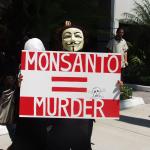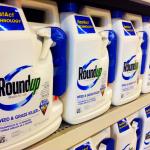Countless articles at the American Council on Science and Health have reported on the studies underlying the regulatory science of glyphosate. It would be fair to say that our analysis suggested little risk.
Bayer
The Wall Street Journal recently reported that a St. Louis jury ruled in Bayer’s favor this September, delivering the company its fifth consecutive trial victory.
If glyphosate is such a deadly pesticide, why do activist groups have to lie about it?
During a recent trip to Home Depot, I found myself standing next to another customer in the lawn and garden department. He was attentively looking over a container of the weed killer Roundup. "Isn't this the one that causes cancer?" he asked.
The anti-GMO movement has lost much of its cultural relevance in recent years and it now appears that the political debate surrounding crop biotechnol
If you search for “glyphosate in food,” you'll run headfirst into an endless list of copycat stories, all warning about the dangers of weedkiller-tainted cereal, bread, crackers, baby food, chips, eggs, meat— and basically any other food you can t
The Conversation bills itself as a website designed to “Unlock the knowledge of researchers and academics to provide the public with clarity and insight into society’s biggest problems.” Their s
For the better part of six years, anti-GMO groups circled the wagons around a single message: the weed killer Roundup (glyphosate) causes cancer, specifically Non-Hodgkin's Lymphoma (NHL).
Social media platforms shouldn't be trusted to censor scientific “misinformation.” As we've reported in recent months, such efforts by tech companies like Facebook are crippled by partisanship and double standards.












